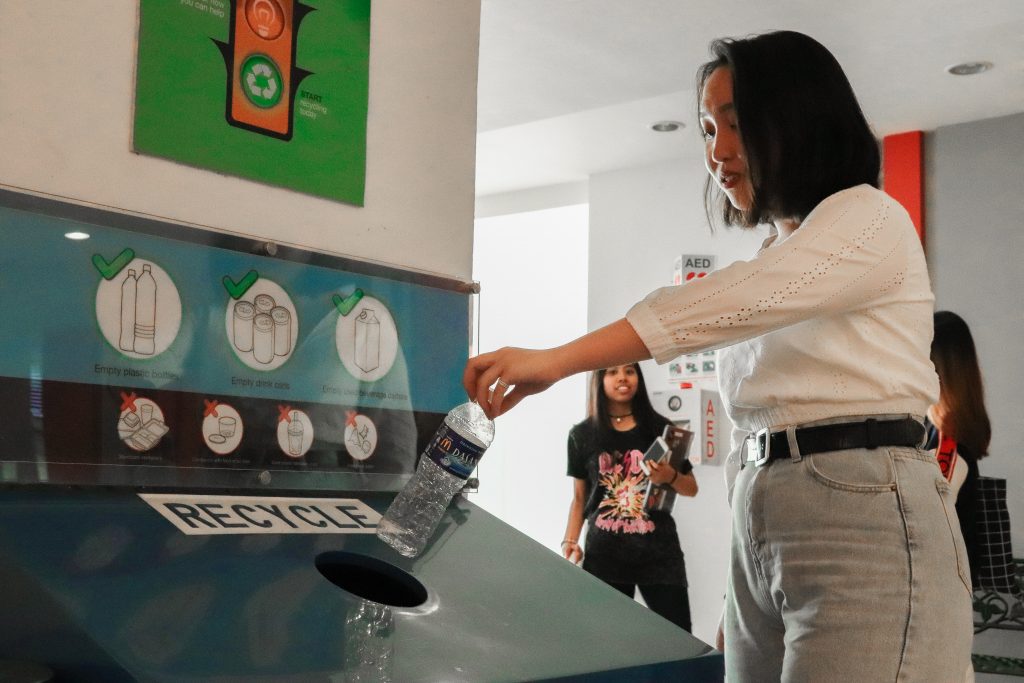
Meet Eunice Tan, 18. She carries a recyclable bag and metal straw whenever she’s out and reuses plastic bags whenever possible.
“We don’t have to suddenly live a waste-free lifestyle. I believe, so long you’re conscious about it, that’s already a first step towards helping the environment,” she shared.
However, unlike Eunice, many Singaporeans are still using plastic products freely without attempting to recycle them.
National Environment Agency’s (NEA) waste management statistics show that the recycling rate of plastic waste has been decreasing in the past 5 years, falling from 11 per cent in 2013 to 4 per cent in 2018.
A main reason for the dismal rate is waste contamination, NEA explained.
“40 per cent of the items deposited in blue recycling bins are non-recyclable, including items with food and liquid waste, which may also further contaminate other recyclables”, said Ms Leong Pei Yi, an engineer from the NEA Waste and Resource Management Department.
Another 2018 survey by the Singapore Environment Council (SEC) and Deloitte found that residents in Singapore use at least 1.76 billion disposable plastic items a year. Less than 20 per cent of these items get recycled.
“Virgin plastics are just too cheap,” said Mr Michael Broadhead, director of EarthFest Singapore. “There’s little market value for recycled plastics since oil prices have been low.”
Crude oil is a raw material used in the production of plastics.
While the falling rate of plastic waste recycling in Singapore seems alarming, some environmentalists in fact welcome the trend.
“Recycling isn’t the solution to the plastic problem right now… Even if recycling rates rose, it may not make a substantial difference, or any difference to the situation at all,” said Ms Aarti Giri, the founder of Plastic-Lite Singapore.
“It may do more harm than good, because recycling gives people the false belief that they’re protecting the environment by recycling their plastics after consumption.
“But they’re still using plastics, and that’s the problem,” added Ms Aarti.
“People realize recycling systems are broken globally, that most of the plastic they put in recycling bins won’t end up being recycled,” said Mr Broadhead. “Even environmentalists in Singapore are currently deliberately putting their plastics in the trash, because then they know it will be incinerated and not disposed of in an illegal foreign landfill or dumped in the ocean”.
““Recycling alone cannot solve Singapore’s plastic waste problem.”
Ms Aarti Giri, the founder of Plastic-Lite Singapore
“Recycling alone cannot solve Singapore’s plastic waste problem. A more effective approach would be for all of us to reflect on our lifestyles, reuse plastics whenever possible and refuse or reduce the use of unnecessary plastic disposables,” advised Ms Aarti.
“What we need to do is get people to stop and think, because awareness is the greatest power.”
